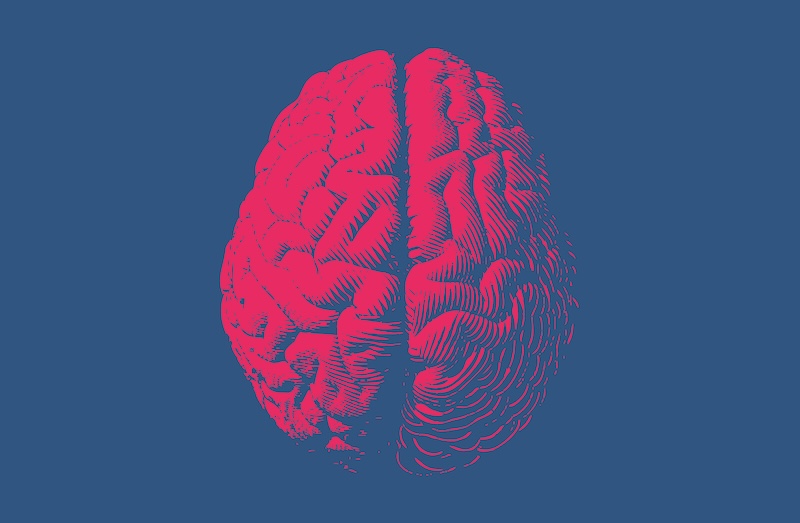Queen’s Belfast law student Sarisha Harikrishna explores the impact of brain function and behaviour within the context of criminal offences

The law’s existence is anchored in the pursuit of justice and ensuring equality for all individuals, regardless of their social status and racial identity. However, in preserving this delicate balance of justice, the scales tip between intention and action, between what one chooses to do and what one is capable of understanding. In the realm of criminal law, the expectation of proving both mens rea (guilty mind) and actus reus (guilty act) beyond reasonable doubt is required to establish the guilt of an individual under the eyes of the law.
However, the course of proving guilt beyond reasonable doubt is a difficult task for the prosecution, especially when the defendant is neurodivergent. Neurodivergence is the expression used when an individual’s brain processes, learns and displays different behaviours from “typical” actions. Neurodivergence is a broad spectrum, including conditions such as dyslexia (a learning difficulty affecting reading and writing), dyspraxia (difficulty with physical coordination), dyscalculia (difficulty with mathematical concepts), Attention Deficit Hyperactivity Disorder (ADHD) along with Autism Spectrum Disorder (ASD).

Since the birth and consequent flourishing of the common law, it has been hailed for being a versatile body, constantly evolving to meet the demands of society. Yet, it is peculiar how criminal law’s rigid expectations of mens rea fail to account for the nuances of human cognition, facilitating a hostile environment for neurodivergent individuals. For instance, in the case of R v Sossongo, the Court of Appeal quashed the conviction of the then 15-year-old boy’s involvement in a violent murder after evidence diagnosing him with ASD and ADHD were adduced.
This case illustrates the complexities that courts have to navigate in deciding whether to hand down severe judgments such as life imprisonment to individuals who may have an underlying neurodivergent condition where impulsivity, hyperfocus, or social misinterpretation guide their behaviour. This article will delve into how traditional interpretations of mens rea inadequately reflect the cognitive realities of neurodivergent individuals and propose reforms to ensure a more equitable justice system.
Autism and ADHD challenging traditional mens rea standards
It is a common misconception that neurodivergent individuals are a ‘minority’ in the youth justice system. However, they are increasingly becoming the statistical norm in England and Wales, with 12% of individuals in custody possibly having ADHD while 15% may be on the spectrum. A 2021 report by the Criminal Justice Joint Inspection which evaluated the experiences of neurodivergent individuals in the criminal justice system found evidence of ‘serious gaps, failings and missed opportunities at every stage of the system’. The typical process of booking individuals in at the custody suite was found to cause neurodivergent individuals a significant level of distress and anxiety, resulting in behaviours that may be misunderstood as non-compliant by the police. The criminal justice system’s failure to protect neurodivergent individuals from criminalisation through no fault of their own casts doubt on its reputation as an equitable system.
Mens rea, which refers to the intention of an individual to commit a crime which is made penal by statute or the common law, can be proven via tangible evidence, such as the recording of a suspect’s thoughts in a document or electronic communications or if they articulate their thought process in a police interview. Neurodivergent individuals may struggle with abstract thinking, social cues and recognizing the consequences of their actions. This will inevitably negatively impact their ability to form mens rea, inviting questions on whether they were truly autonomous in committing the crime.
Although there have been significant international developments towards recognising neurodivergence as a mitigating factor in sentencing decisions, the United Kingdom seems to be falling behind in engaging in such efforts. At present, the criminal justice system uses the “reasonable person standard” and judges all individuals against this metric, however attempting to fit individuals into an arbitrary box runs contrary to the very crux of the legal system — which is to protect marginalised communities.
Differentiating between neurodiversity and mental illnesses
At this juncture, it would be legally, morally and ethically unsound to conflate neurodiversity to be equal to having a mental illness under the law. English law views mental illnesses and neurodiversity as distinct from each other due to three reasons, which are to ensure justice and fairness, reduce the “revolving door” and promote inclusivity.
Want to write for the Legal Cheek Journal?
Find out moreFirst and foremost, it is important to distinguish between both based on their nature and origins. Neurodivergence is often present from birth or early childhood and affects an individual’s real-world interactions. On the other hand, mental illnesses arise due to different factors such as genetics, environmental influences and difficult life experiences. Although neurodivergence is not a mental illness, neurodivergent individuals are at higher risk for developing mental health issues such as anxiety and depression when navigating the challenges in a neurotypical world.
Criminal law permits mental illness to be used as a defence, known as the insanity defence, where the defendant can argue that they had no awareness of their actions due to the presence of a severe mental illness. The insanity defence is a legal, not clinical concept, meaning that evidence of suffering from a mental disorder is not sufficient to prove insanity. The burden shifts onto the defendant to prove the defence.
The “revolving door” refers to the importance of addressing the specific needs of neurodivergent individuals in order to reduce their likelihood of reoffending, especially for low-level offences such as theft, drug possession and criminal damage. By providing neurodivergent individuals with proper resources and tools, it is evident that they would be able to navigate the legal system just as well as their neurotypical peers can.
To this end, a diagnosis of a neurodivergent condition does not inherently mean that an individual has a disability. Some, not all, neurodivergent conditions are legally considered disabilities under the Equality Act 2010. The Act describes a disability as having a physical or mental impairment that has a ‘substantial’ and ‘long-term’ negative effect on an individual’s ability to engage in normal daily activities. While many neurodivergent individuals meet the legal definition of disability enshrined under the Act, some of them prefer to see their differences as a strength, preferring to not be categorised as having a disability.
Article 13 of the Convention on the Rights of Persons with Disabilities (CRPD) safeguards effective access to justice for those with disabilities, including through providing accommodations where needed. As a signatory, the UK is required to ensure access to justice for all — including providing neurodivergent individuals with the resources needed to navigate the justice system and fostering understanding among authorities.
Reforms to accommodate neurodivergent defendants in criminal justice
One of the most important reforms that should be undertaken to provide a comfortable environment for neurodivergent individuals in the courtroom is allowing them to sit next to their defence lawyer, rather than being placed separately in a dock. Neurodivergent individuals often fear loud noises and changes in routine, such as being put on the spot during questioning or navigating a high-stress environment.

Additionally, the use of long questions and complex language should be avoided to allow neurodivergent individuals the opportunity to fully process the question before responding. More time should be given to consider information and provide instructions — enabling them to exercise their judgment independently rather than feeling patronised. Environmental adjustments such as removing loud clocks, permitting movement, allowing use of fidget toys or comfort items, and familiarisation with the courtroom can also make a significant difference.
It is well documented that neurodivergent individuals find sudden disruptions to routine challenging, so regular breaks should be scheduled during proceedings. A clear timetable with all timings should be provided, and if an unexpected change occurs, it should be communicated in advance to give time to adjust.
In conclusion, the law cannot claim to be just while it punishes minds it cannot fully comprehend. Neurodivergence is not a flaw in logic — it is simply a different rhythm of thought. If justice is blind, let it also be wise.
Sarisha Harikrishna is in her final year of law school at Queen’s University Belfast. She’s an avid researcher on many different topics, including international law, criminal law and human rights law.
The Legal Cheek Journal is sponsored by LPC Law.
 (
( (
(

